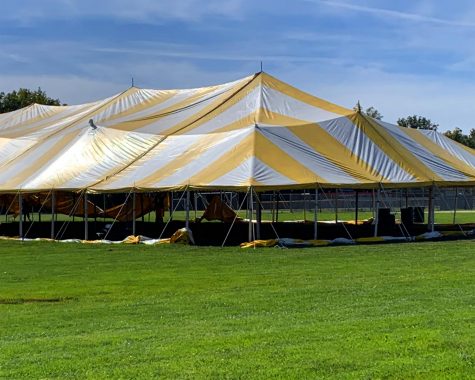Sex Education Needs to Accommodate Everyone
Health: one of the more dreaded requirements to complete for graduation. From the documentaries that make you lose faith in all food to the pictures of sexually transmitted infections, it can be a little much. Although health classes at P-CEP manage to do a pretty good job of introducing students to the basics of how to live a healthy lifestyle, there is a huge lack of information given on sexual health.
Health classes tend to teach the dangers associated with sex, such as STIs, STDs (sexually transmitted diseases) and pregnancy, but they do not give much information on how to prevent these dangers. More so, they introduce you to the dangers as a scare tactic to promote abstinence education. This is dangerous, however, because in their formative years, young adults are curious and tend to try and learn as much as possible by exploration. Without knowledge of ways to responsibly take part in sexual activities, teenagers run the risk of making irresponsible decisions.
Another problem with the lack of information we give to teens in health classes is that we give LGBT+ teens little to no information on responsibly taking part in sexual activities. Why are we ignoring an entire demographic? Many students do not know that there are many forms of protection that are made specifically for LGBT couples. Even fewer know that protection is even necessary because they believe that since many of these couples do not run the risk of pregnancy, protection is unnecessary. This in turn leaves a wide demographic of kids, who are probably not getting this information at home, uneducated on the topic. They in turn have to seek out their own information, and at times this can be dangerous because some people may seek out the wrong sources if they are not guided in the right direction.
While some may make the argument that it is the parents’ responsibility to teach their children about sexual health, this is not always the best thing to wait for. Many parents find it uncomfortable to talk about it with their children and try to avoid the topic as much as possible. Not only that, but many parents do not answer questions on the topic. Although we may see it as the parents’ responsibility and that it is disrespectful to teach their children without permission, there are many ways to make sure you aren’t disrespecting the parents values. For example, just simply having two separate lessons on the topic of sexual health, one with no holds barred and the other that is a little more reserved, is one way, and parents can approve the one they would like their child to take part in. Another way is to have the class be strictly for upperclassmen; many people would be more open to their teenager being educated in a non-reserved fashion if they are older. One last way is to have a separate class in the Program of Studies that teaches students sexual health specifically.
With all of these possible way to educate students, why aren’t we doing it? Though it may be an uncomfortable topic for many, it is necessary to educate our students on the topic. Our society is becoming too advanced and educated to continue to have a lack of knowledge in one of the most natural human functions. If we continue down this path of un-education, how do we expect to eradicate teen pregnancy or sexually transmitted diseases? Abstinence education is not the answer because abstinence only works until it no longer does, whereas healthy habits work forever.
Your donation will support the student journalists of Salem High School - MI. Your contribution will allow us to purchase equipment and cover our annual website hosting costs.








